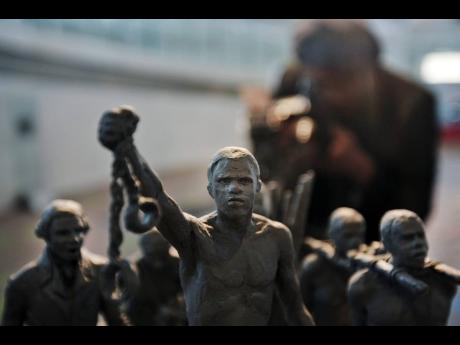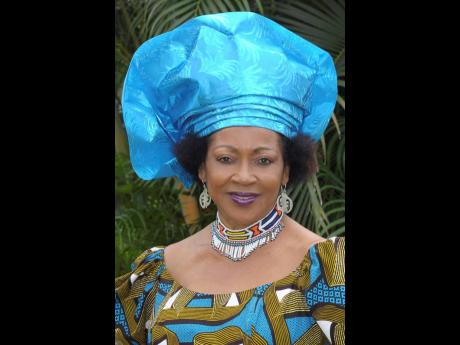Verene Shepherd | Republic with reparation
On International Human Rights Day in 2021, The Gleaner, celebrating 70 years of publishing in the UK, held an e-conversation in which the main question to be considered by the six panellists was, “Should Jamaica become a republic?” I was one of the panellists, and when my time came to speak, my simple answer was, “Yes, Jamaica should become a republic, indeed, should have done so many years ago; for to continue to have the Monarch of Britain as the country’s Head of State is to continue to participate in our own oppression.”
For too long, we have had an unequal relationship with England/Britain, which started in the period of republicanism that lasted in England for 11 years in the middle of the 17th century. In the English Civil War, the Roundheads defeated the Royalists, King Charles I was beheaded, and the Republican Commonwealth and Protectorate commenced in 1649. Oliver Cromwell, a leading figure in the Republican movement that overthrew the Stuart Monarchy, became head of state, with the title lord protector. He ruled England from 1653 to 1658, during which time the island was captured by the English from the Spanish. The monarchy was restored in 1660 and is still in place.
Happily, a succession of the country’s prime ministers declared their support for the idea over the years: Patterson in 2003, Simpson-Miller in 2012, and Holness in 2016. Of course, polls from Carl Stone to Bill Johnson (2017) showed a majority in favour of keeping the then Queen of Britain as Jamaica’s Queen, a resounding 60 per cent in 2011. In 2020, fifty-five per cent, according to a Bill Johnson poll, said Jamaica should not continue to have The Queen (at the time) as head of state. So the tide has turned, and we are on our way to doing what is necessary to make the transition and to “stop loitering on colonial soil” as the former (and late) Prime Minister Errol Barrow of Barbados said in 1966.
NEGOTIATED
But we in Jamaica should ensure that a reparation/development/severance package is negotiated so that the Royal Family/the British State, which benefited massively from the transatlantic trafficking in Africans, chattel enslavement, and colonialism, does not get off scot free. In the article “Throne of Blood”, historian Brooke Newman noted that in an effort to bolster the wealth and power of the restored monarchy and to supplant the Dutch in the Atlantic trading system, “Charles II granted a charter to the Company of Royal Adventurers Trading to Africa, a private joint-stock company, less than six months after ascending the throne. The charter gave the Royal Adventurers a 1,000-year monopoly over trade, land, and adjacent islands along the west coast of Africa. This offered the prospect of a revenue stream that would enable the Crown to gain financial independence from Parliament.”
Dr Ahmed Reid in a recent article, reinforced the connection of the British royal family to the transatlantic trafficking in enslaved Africans (TTA) through Queen Elizabeth I. She invested in John Hawkins’s 16th-century expeditions, a practice maintained during the 17th century by King Charles II. Both Newman and Reid argue that the Crown cannot deny that it and members of the royal family invested heavily in the trafficking in Africans. The king granted the company access to several of his personal fleet, including the vessel the Blackamoor, with the contingency that he would receive two-thirds of the value of any gold mines discovered. The resulting acknowledgement of this stolen African gold was that in England when the newly minted gold coins, known as “guineas”, entered circulation, they would be stamped with the Royal Adventurers emblem – an elephant – directly underneath the monarch’s head.
BENEFITS
Dr Reid added that the benefits to the company from the direct royal connections went past their financing and political support. The company also had the protection of the Royal Navy. The connection did not end when the company, reorganised under the name the Royal African Company (RAC) received a new charter to continue its mission of kidnapping Africans. Records state that the RAC delivered 187,133 African men, women, and children to the Americas, with a significant number going to Barbados and Jamaica although the number when all the chartered companies are combined suggest a figure of about 256,000 Africans taken over the course of 876 raids.
Clearly, then, British monarchs with direct connections to the RAC is undisputable. They even stamped their mark on the bodies of Africans. Captured Africans taken while the Duke of York and Lord High Admiral (later King James II) governed the company were branded with his mark, DY for the Duke of York or RACE for the Royal African Company of England. Other royals protected, defended, and profited from the TTA. In fact, records indicate that in 1799, William, (later King William IV) as the Duke of Clarence, spoke against abolition in his maiden speech in the House of Lords.
So Republic with Reparation I say. At independence there was no “Marshall Plan” or “Colombo Plan” or respectable Golden Handshake for the Caribbean, leading Eric Williams to say: “The West Indies are in the position of an orange. The British have sucked it dry and their sole concern today is that they should not slip and get damaged on the peel.”
Let’s not make that mistake again. According to ICJ Judge Patrick Robinson in The Brattle Report titled The Quantification of Reparation for Transatlantic Chattel Enslavement in the Americas and the Caribbean, Britain owes Jamaica US$9.559 trillion. A development package for social infrastructural development using that sum or close to that sum would surely be welcomed by all.
Send feedback to reparation.research@uwimona.edu.jm


